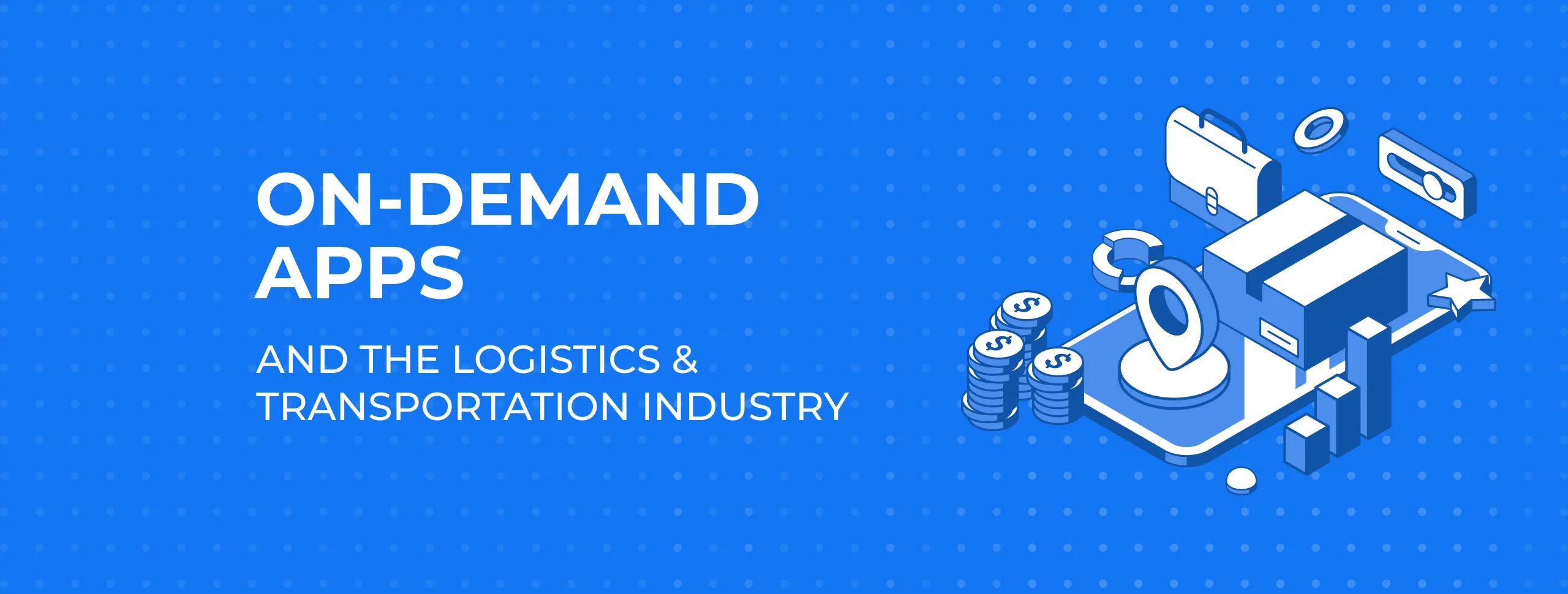
On-Demand Apps and the Logistics & Transportation Industry

Technology and Logistics & Transportation are a match made in heaven. This industry is so linked with the cross examination of such diverse sets of data that computers and their counterparts have become the keystone of so much of the work that is done. However, are new technologies, new innovations and new trends being used to their full potential?
A Gaping Hole in the Industry
There are few sadder sights Every year, there is an estimated loss of $16 billion dollars simply as a result of empty containers. That’s not a typo, but ‘billion’, with a ‘b’. Truckers and shipping companies spend these massive sums each year for the simple reason that they cannot fill those containers quickly enough, resulting in those losses increasing other prices all around and limiting competitiveness. So how do we solve it?
The Traditional Approach
Wherever there is a disconnect in an industry, there are always middlemen who are ready to step in and fill the gap. Freight brokers have served a great purpose in identifying those with cargo and connecting them with those who need it. The drawback, however, has always been the commission they charge, averaging around 20%. Many shipping companies have developed great relationships with these brokers and swear by their services, but many others find the commissions preventative and developing new relationships with them problematic.
The 21st Century Approach
The rise of mobile technology has left very few services unaffected, and logistics & transportation are no
different. Everything is going on-demand, from the films you watch on Netflix, to booking a holiday getaway on
AirBnB, to catching a ride home with Uber. Cutting out the middleman, or at least simplifying his role, this uberization
of the economy has seen a rise with shipping companies as well. Technology allows those with the cargo and those
means to deliver to find each other. More availability means fewer empty trucks and many more dollars and pounds
in savings.
Getting from A to B
Saving money appeals to everyone as long as there is no loss in the quality of service. If you can improve the experience of all parties involved, you can leverage those improvements. Think about the ways in which the following software and features could improve the lives of shippers and drivers:
And the full list of possibilities is far more extensive. Software that use sophisticated algorithms can
leverage them to turn a profit. As we discussed above, the Uber
approach to Logistics & Transportation is
the direction things are heading, but it begs the question, If we are removing the middleman and cutting down
costs, what room is there for us to monetise what we develop?
The answer is simple, position yourself as
the distributor, not the consumer, picking the method that will drive the most profit to your business.
Choosing A Monetisation Scheme
Currently, there are several similar apps on the market, offering different revenue schemes for carriers and shippers:
- free for carriers,
- commission for shippers;
- a flat commission based on the shipment value;
- and monthly/annual subscription.
The first method offers the closest thing to the traditional booking agent approach, but allows everyone an equal seat at the table and a reduction in costs, time and the mystery that surrounds many agent practices. Beyond monetary value, creating an effective, value-driven app will create a following of customers, willing to pay what it takes to use your technology to simplify their supply chain.
Developing a Value-Driven App
Think about the technology your company already uses. For many, it is a blend of different brands and software that you have build to form a coherent process, but it limits you by compatibility. TO build relationships with carriers, they must be on the same system(s), so our proposition is simple: consolidate and make that system your own.
An experience mobile and web application development agency knows how to combine the functionality you have into a process with exceptional user experience, requiring minimal training on an intuitive interface, offering a wide range of current and potentially additional services, and simplifying everyone’s search for business by trimming off the excess steps that slow things down.
Drivers don’t want to be stuck with empty trucks. They also don’t want to be limited in their availability. They want to demonstrate their readiness to do their job to any reliable shippers in the area, calculate and cut costs and establish relationships and their own reputation with new companies. Your app adds value when you invest in a vetting process that increases your brand recognition and protects quality and transparency in the market.
If we think about Uber or AIrBnB, one of its chief selling points is the vetting process of all participants. If drivers know they can open new doors based on quality past performance. Those who have completed necessary training and obtained all the necessary credentials hold a strong position in a more transparent marketplace.
Shippers recognize the value of being able to choose verified, accredited carriers. Imagine now the number of possibilities a shipper can enjoy in a one-stop-shop app:
Those features and many more can be built into a tailored app for your business. Just look at Jonathan Wichmann’s list of companies that have done this already, and think about how you can add your own business’ name to the top of it. Get in touch with a Magora expert today and start a dialogue about web or mobile application development and the value it can add to you Logistics & Transportation business!





